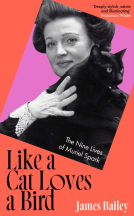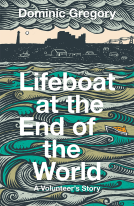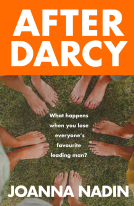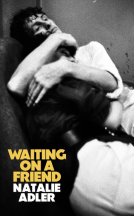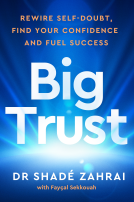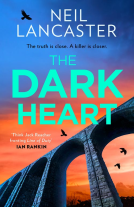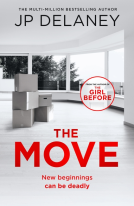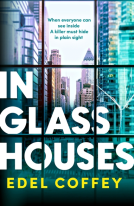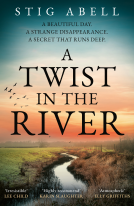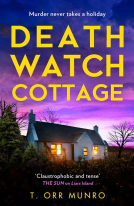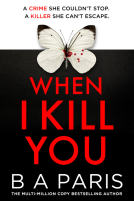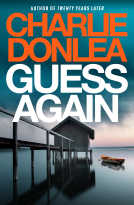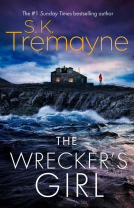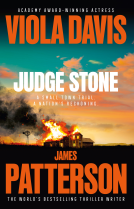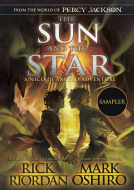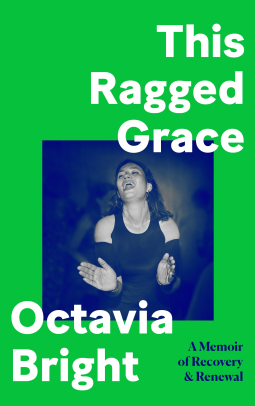
This Ragged Grace
by Octavia Bright
This title was previously available on NetGalley and is now archived.
Send NetGalley books directly to your Kindle or Kindle app
1
To read on a Kindle or Kindle app, please add kindle@netgalley.com as an approved email address to receive files in your Amazon account. Click here for step-by-step instructions.
2
Also find your Kindle email address within your Amazon account, and enter it here.
Pub Date 1 Jun 2023 | Archive Date 1 Jun 2023
Talking about this book? Use #ThisRaggedGrace #NetGalley. More hashtag tips!
Description
A beautiful, brave, ideas-rich, open and electric reckoning – with addiction, loss, self and hope in your twenties and thirties
This Ragged Grace tells the story of Octavia’s journey through recovery from alcohol addiction, and the parallel story of her father’s descent into Alzheimer’s. Looking back over this time, each of the seven chapters explores the feelings and experiences of the corresponding year of her recovery, tracing the shift in emotion and understanding that comes with the deepening connection to this new way of life. Over the course of this seven-year period, life continues to unfold. Paths are abandoned, people fall ill, waters get choppy, seemingly impossible things are navigated without the old fixes.
As Octavia moves between London, the island of Stromboli, New York, Cornwall and Margate, each place offers something new but ultimately always delivers the same message: that wherever you go, you take yourself with you.
Advance Praise
‘An extraordinary, electrifying book about loss, chaos, addiction and death, and the wild work of staying tender in the face of it’
OLIVIA LAING
‘The intelligence of the writing is a kind of grace in itself - light and deep and beautiful’
DEBORAH LEVY
‘This Ragged Grace is smart and tender, and honest in that raw way that gets you at the back of your throat. It is slowly revealing of the world, and an avalanche of feeling, all at the same time. A towering act of grace, in fact’
EMILIE PINE
‘How lucky we are that Octavia Bright has written this book, full of rich, subtle, hard-won, beautifully woven wisdom and love. Read this book and carry its light with you forever’
DAMIAN LeBAS
‘This Ragged Grace is a courageous work, filled with a deep tenderness and generosity and authenticity, the voice of Octavia Bright stays with me, it is honest, intricate, raw and real. This Ragged Grace is so beautiful, so bold and so Bright’
SALENA GODDEN
‘This Ragged Grace examines the fragility of the self in exquisite detail. Generous, compelling, poignant and ultimately, life affirming; Bright has managed to capture the complexity of being human’
HEIDI JAMES
‘A truly enlightening read: poetic, courageous and surprising. Beautiful, intelligent prose and such a brave journey into art, family and the deep structures of an addictive personality. On top of that This Ragged Grace is a love letter to the sea and the wisdom we share with it. I loved it’
DORTHE NORS
‘An intellectually astute and open-hearted account of a life-turned-work-of-art, which draws its reader into conversation with our own attempts at renewal’
ELLENA SAVAGE
Available Editions
| EDITION | Hardcover |
| ISBN | 9781838857462 |
| PRICE | £16.99 (GBP) |
| PAGES | 256 |
Available on NetGalley
Average rating from 29 members
Featured Reviews
Octavia Bright was trying to run away. She was trying to run away from herself. She had various strategies for doing this. She drifted into graduate school in order to run away from making big decisions about which direction to take. And she drank--she drank a lot. While drunk, she engaged in behaviour that was embarrassing at best and nearly fatal at worst--and that's the stuff she could remember. At some point, she realised she needed help and availed of the medical and mental health services available at her university and started on a journey towards herself via recovery. It was often painful and scary, but she took solace in words, her research into the art of Louise Bourgeois and others, her reading of philosophy and spiritual ideas, all of which she shares with the reader. She felt drawn to the sea and spent time there, aiding in her recovery. She was learning a new way of being in the world, but also in her own skin.
About two years into this journey, some odd behaviours of her father, with whom she was very close, were explained when he was diagnosed with dementia. As she learned how to accept and discover the changes in and relationship with herself, she also had to learn to navigate the same with her father.
This memoir covers seven years in the author's life. During these seven years, her world turned upside down in many ways and by the end of this time, everyone's world had turned upside down as COVID raced around the world. It's a beautiful book and although it might not seem like it on the surface, an uplifting one as well. We all go through really terrible times in our lives and we have to learn how to accept what is, draw on our strengths, and move through them, finding inspiration and courage from wherever we can. Her descriptions of her life while drunk were sometimes harrowing, and her father's slow decline was heartbreaking, but her discovery of inner resources and strengths that she did not know she had was powerful and beautifully communicated. I would definitely read more by this author.
Honest and heartbreaking, This Ragged Grace is one of those memoirs that really resonates.
Bright's style is simultaneously intimate and rich in metaphor: while this is very much her own story, like a true academic she also contextualises it in art and literature. There are echoes Olivia Laing and Deborah Levy: this is a story of self-reflection which resonates with the wider world. It's beautifully written with a distinctive voice, and I kept finding myself highlighting passages to return to.
This Ragged Grace is an unflinching memoir of growth and grief, recovery and reckoning.
 Stephanie L, Reviewer
Stephanie L, Reviewer
On a raw and tender memoir of a woman’s recovery from alcohol addiction and the parallel story of her father’s descent into Alzheimer’s. This is a book I received an advanced copy for and truthfully, I wasn’t planning to read another devastating memoir, but I couldn’t resist when I saw how it was highly praised by Olivia Laing and Deborah Levy. In fact, Laing called it extraordinary and electrifying. I couldn’t agree more.
The seven chapters of the book chronicle Octavia Bright’s journey of recovery, including how she found solace and comfort in words and art. Bright tells the story of how addiction was the result of her running away from life, and how over the seven-year period that includes moving between cities, she learned to navigate changes and find acceptance, repairing her own relationship with herself whilst grieving through her father’s condition.
“If you consider yourself a recovering alcoholic, the story you can tell yourself is one of resilience. When I was younger the freedom I wanted was to do with escaping my own mind. Now, I find freedom in knowing it. My recovery continues day by day and I have learned to trust it. I accept the void and most of the time it leaves me alone. When it doesn’t, I try to greet it like an old but distant friend, with curiosity and with grace.
We tend to think of grace as to do with smoothness, elegance or the divine, but I’m more interested in the ragged kind. Like perfection or completion, smoothness is a false ideal: friction is where you meet reality. Instead, I look to the grace of natural processes that prevail in spite of everything – the flowers that grow on a volcano, the skin that grows over a wound, the forgiveness at the heart of love, the generosity of time.”
The book was a heartbreaking one to read, but I’m glad that I gave it a proper go. It’ll stay with me for a long time.
This was a beautifully written, yet difficult to read story. I am not usually a reader of non-fiction books but this one really opened my eyes!
Highly recommended
Read on Olivia Laing’s Say So!
This was a book I requested as an ARC with some trepidation. That is, because I always wonder, a little, what it is that might make me want to read some kind of ‘misery memoir’ where a journey into darkness and probably some degradation looks to be part of the journey.
Am I doing this as some kind of rubber necking at car crash activity – particularly if the deeply anguished, shame filled part of the journey is not one I have personally been on.
So that was my trepidation, and I would not have requested this if it hadn’t been praised as it was by Olivia Laing – who does cover some of the same territory in some of her biographical work, particularly, looking at the work of several artists and writers – that story of artistic genius allied with personal chaos.
The trepidation was also that sometimes, writers a reader may absolutely admire and respect might heap praise on another writer and it might only be (or seem to be) a kind of literary back scratching.
Would Laing’s praise be justified?
Yes.
I didn’t think it would be at the start, where Bright starts her account, newly in recovery, where perhaps disordered thinking, and a kind of woe is me excess, coupled with lots of inspiring quotes from various philosophers and writers are liberally scattered, almost like an intellectual self-help book. But Bright IS an academic, WAS working on her PhD, so of course her subject matter was very pertinent.
I think where I really began to be increasingly drawn in, was in her account of something which happens to us all – unless we die very young – that turn, where the child whom at some level still exists in all of us, however adult we are, becomes the parent to a parent moving inexorably towards their own dying days. And this is starkly so when a parent develops dementia. It is not just the failure of the body, it is a sense of someone losing themselves, being lost to us.
So, this is an extremely painful book, a very raw one, very tender, very true and it was not a case of me ‘rubber necking car crashes’.
It also reminded me, a little, of Helen McDonald’s Hawk, another book riven by the deep loss of a loved parent, which has things to offer the reader in their own journey’s of loss.
Not so much a ‘self help’, more, a shared place of humanity, witnessing each other.
4.5 rating, raised
Readers who liked this book also liked:
Rick Riordan; Mark Oshiro
Children's Fiction, LGBTQIA, Teens & YA
